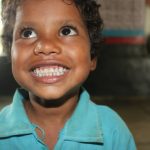We conduct multidisciplinary research into childhood adversities including maltreatment, trauma and injury, violence and burden of disease. We use sophisticated methods to measure adversities, analyse their effects, and design and test interventions in a range of settings. These settings span families and neighbourhoods, education (e.g., schools and early childhood care and education), social organisations (e.g., sports, cultural, arts and recreational groups), workplaces (e.g., retail, hospitality and food services), and community and public spaces. Our expertise across disciplines and methodologies, and our teamwork and collaborations, allow us to design sophisticated research and answer complex questions. Uniting our work is an aim to improve how health, social and regulatory systems can better prevent, identify and respond to childhood adversity to enhance social justice and improve children’s health over the lifespan. Working with Australian and international partners in the public, private and non-profit sectors, Childhood Adversity Research Program researchers have been addressing these urgent concerns through research which directly informs creative and cost-effective policy responses. The scope and impact of our new and ongoing projects has been extensive. These programs of research have resulted in substantial end-user impacts.
Prevalence
 |
We conduct national studies to measure the prevalence of childhood adversities, including child abuse and neglect; online violence; developmental and other childhood adversities; and exposure to parental alcohol use, drug misuse and mental illness. We conduct large-scale studies to generate reliable baseline evidence and trend data, and evidence of risk and protective factors to inform targeted public health interventions. We conduct studies in Australia, overseas and in multiple countries. We work with other internationally reputed collaborators and publish findings in leading journals. This Program is led by Dr Ben Mathews and members include Michael Dunne, Divna Haslam, Adrian Kelly, Rosana Pacella, Kirsten Vallmuur, and Kerryann Walsh. |
Outcomes
 |
We conduct large-scale quantitative studies to analyse diverse mental and physical health outcomes of childhood adversities through the lifespan, as well as the economic and social consequences of childhood adversities. These include studies of developmental, social, educational and behavioural outcomes in childhood, adolescence and adulthood; epigenetic change associated with childhood trauma; and economic and health service use outcomes. We also examine key risk and protective factors associated with various outcomes. These studies adopt various methodologies including national cross-sectional studies, longitudinal cohort studies; studies using biological samples and data linkage using multiple government administrative datasets. We also conduct gold standard systematic reviews and meta-analyses (Cochrane Reviews). Our work includes some of the most prominent studies done in Australia and internationally. This work helps to inform governments, policy-makers and industry bodies about the state of evidence, and about where they can best invest in prevention.
This Program is led by Dr Kristin Laurens and members include Philip Baker, Donna Berthelsen, Michael Dunne, Divna Haslam, Adrian Kelly, Ben Mathews, Divya Mehta, Rosana Pacella, Kirsten Vallmuur, Kerryann Walsh, Kate Williams . |
Interventions
 |
We conduct research to design, implement and evaluate the effects of various health, educational, policy and legal interventions to prevent and respond to childhood adversities. These interventions incorporate a focus on key risk and protective factors. Interventions occur at the population level (primary prevention); to implement targeted interventions for high risk groups of children (secondary intervention); and for children who have experienced adversities (tertiary intervention). We analyse and compare interventions to find out what works and what else needs to be done. We explore gaps in systemic approaches and professional standards and training, and identify ways to implement interventions that are theoretically legitimate, economically prudent, and practically feasible.
This Program is led by Dr Kate Williams and members include Philip Baker, Stephen Bartlett, Michael Dunne, Divna Haslam, Adrian Kelly, Nigar Khawaja, Kirsten Vallmuur, Kerryann Walsh. |